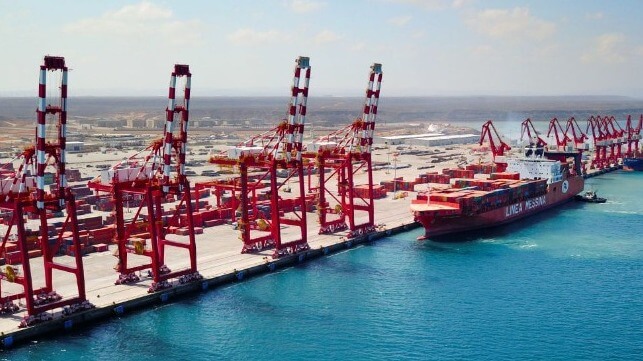Study: China's Overseas Port Developments Threaten Marine Ecosystems

China has been accused of trapping many developing nations into long-term debt through port, power plant and road investments, and researchers are now raising “growing concerns” over the impacts of Chinese development finance on marine systems.
In a new study published in the journal One Earth, researchers from Boston University, the University of Queensland, University of California Santa Barbara and Colorado State University contend that China’s rapid coastal development continues to jeopardize the integrity of marine socio-ecological systems, particularly in Africa and the Caribbean.
The study is the first in-depth evaluation of the risks to marine habitats across China’s portfolio of overseas loans.
The team quantified the risks of 114 coastal projects in 39 countries financed by China from 2008-2019, focusing on impacts on marine biodiversity and coastal indigenous communities. These projects, financed by the China Development Bank and the Export-Import Bank of China, the two most active overseas lenders, represent 20 percent of all Chinese development finance initiatives. Taken together, they are worth nearly $65 billion in finance commitments.
The study shows that ports present the greatest impact risks to marine systems, with risks remaining high even up to 30 kilometers from the port. Power plants, roads and other facilities bring localized risks that are most prominent in Africa and the Caribbean, with coastal indigenous communities in Western Africa at greatest risk.
Port investments in the Bahamas, Antigua, Barbuda, Cuba, Mauritania, Côte d’Ivoire, Cameroon, Angola, Mozambique, Djibouti and Sri Lanka were identified as prominent drivers of the regional hotspots of risk. Port projects in Myanmar, Kenya and Liberia were found to have the smallest levels of environmental risk.

that matters most
Get the latest maritime news delivered to your inbox daily.
The only fishing port included in the study, the Beira fishing port rehabilitation project in Mozambique, presents the single greatest mean impact risk to marine habitats.
According to the researchers, an agenda is needed for “blue-ing” the BRI and all of China’s overseas development finance, and Beijing could extend its domestic environmental risk management policies to its overseas lending practices.
